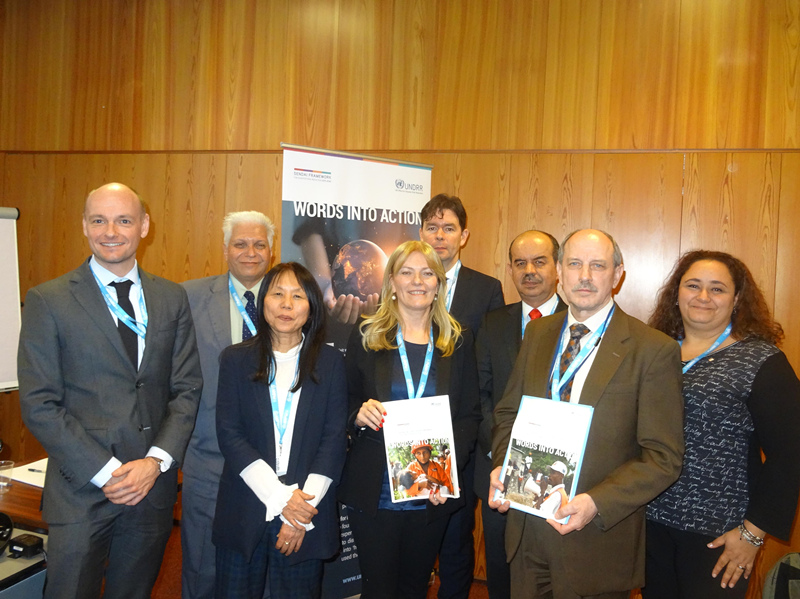
At the launch: (from left) Fred Copper, WHO, Rajan Gengaje, UNDRR consulant, Masayo Kondo, OCHA, Paola Albrito, UNDRR, Jens Kampelmann, Consultant, Nelson Castaño, IFRC, Rudi Müller, OCHA, and Marjorie Soto Franco, IFRC
By Denis McClean
GENEVA, 5 February, 2020 - The latest Words into Action guide, Enhancing Preparedness for Effective Response, was officially launched yesterday at the Humanitarian Networks Partnership Week along with a companion volume, Design and Conduct of Simulation Exercises, SIM-EX.
Both are published by the UN Office for Disaster Risk Reduction (UNDRR) to support implementation of the global plan to reduce disaster losses, adopted in 2015, the Sendai Framework for Disaster Risk Reduction.
The new guide was developed by a core working group of 32 experts from the governments of Germany, Guinea, the USA, the European Centre for Disease Prevention and Control, and the UN agencies: OCHA, IOM, WHO, WFP, UN Environment and UN Women.
Paola Albrito, chief of UNDRR’s Partnership Branch, set the scene. “The Guideline aims at supporting the practical implementation of the Sendai Framework Priority 4 component on enhancing disaster preparedness for effective response which is critical to reduce both disaster losses and disaster risk.”
Ms. Albrito said the need for improved preparedness was demonstrated by the fact that a record number of 41.3 million people were internally displaced last year “and most of them were displaced due to natural hazards including floods, storms, earthquakes and drought.”
Rudi Müller, OCHA chief, Response Support Branch, reflected that he had been working in preparedness for a long time and that “the quality of preparedness determines the quality of response.” Stressing the importance of a focus on preparedness considering new threats including cyber-related issues, he also said there was a need to invest more in mitigation and prevention.
Fred Copper, Emergency Preparedness, WHO, stressed the importance of the companion volume on Design and Conduct of Simulation Exercises. “SIMEX is a key element in your emergency preparedness cycle,” said Mr. Copper who has significant experience in emergency settings including almost three years in Syria.
He said a classic mistake was to focus on a scenario rather than executing and testing your plan. The scope, purpose and objectives of any simulation exercise should be decided before commencing the simulation exercise.